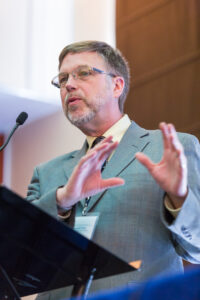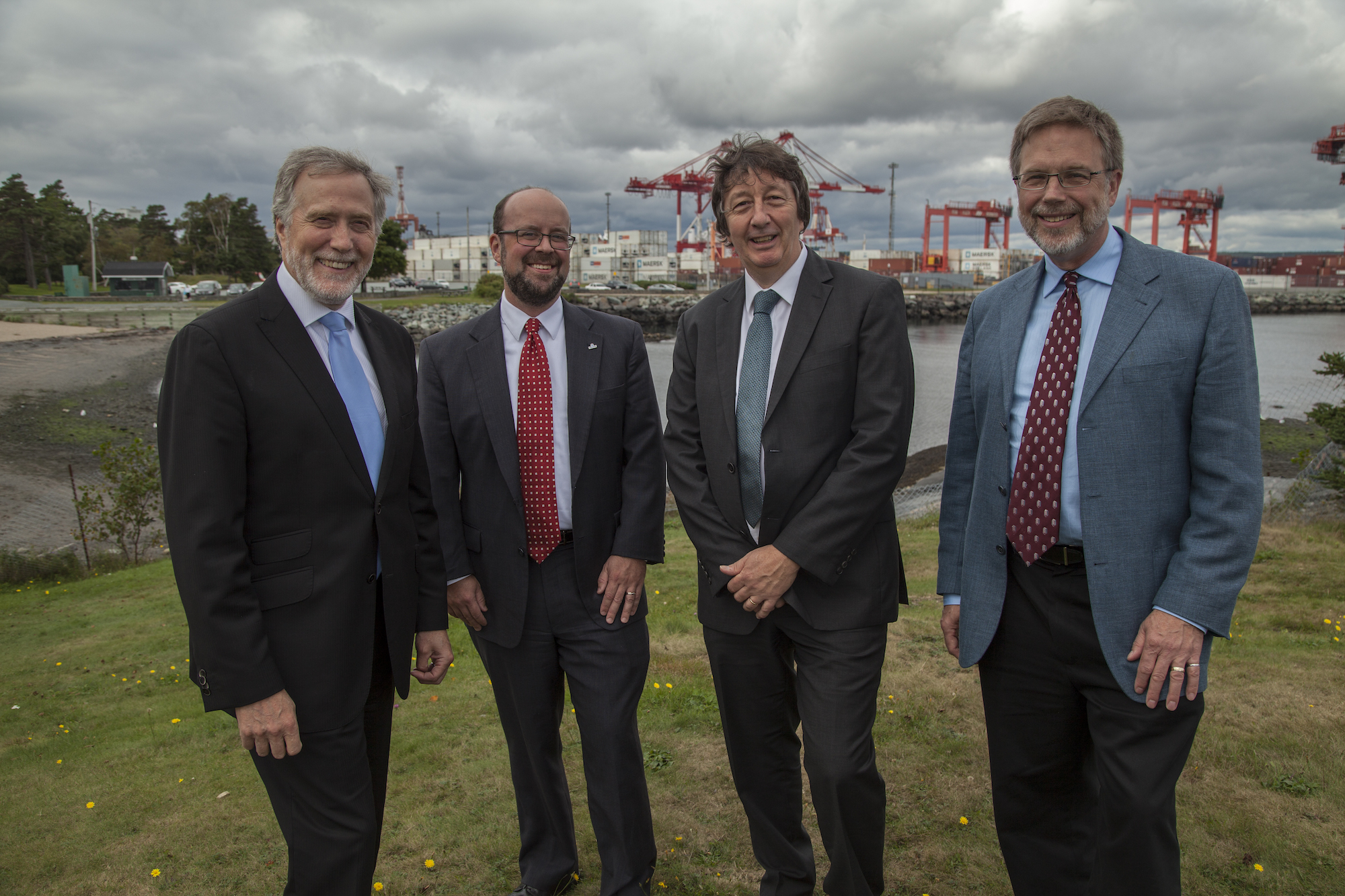 After over a decade of leadership, MEOPAR’s Associate Scientific Director Ron Pelot has moved on. He helped build, support, and guide the Network through two funding cycles, contributing his professional expertise, experience, and wisdom.
After over a decade of leadership, MEOPAR’s Associate Scientific Director Ron Pelot has moved on. He helped build, support, and guide the Network through two funding cycles, contributing his professional expertise, experience, and wisdom.
Pelot has been involved with MEOPAR since the earliest days when Scientific Director Doug Wallace and Professor Keith Thompson of Dalhousie University solicited his help in crafting the concept for MEOPAR’s initial application to Canada’s Networks of Centres of Excellence (NCE) funding program. He brought a unique perspective, informed by experience working with an earlier NCE, GEOIDE, as well as interdisciplinary research expertise on risk and modelling of coastal shipping. When the proposal was funded, MEOPAR’s Board invited him to join as Associate Scientific Director.
“MEOPAR, and I, myself, owe an enormous debt of gratitude to Ron for ten years of hard work,” said MEOPAR Scientific Director Doug Wallace. “Ron was responsible for putting “Response” into MEOPAR and making it a key focus of our Network. He also kept us going with his unique sense of humour.”
Pelot’s contributions reached across the Network; it’s hard to find any MEOPAR programs untouched by his insights. Highlights include his instrumental role in establishing MEOPAR’s Response Core, one of MEOPAR’s three research Cores, and setting up the structure for MEOPAR’s Communities of Practice (CoPs) which connect researchers and end-users across Canada. He is also a founder of, and continues to co-lead, the Canadian Marine Shipping Risk Forum CoP and the Coast and Ocean Risk Communication CoP.
 “I’m proud of having played a part shaping the truly national network that MEOPAR grew into,” said Pelot. “It has given an opportunity for all these researchers to get together across so many universities and sectors. It also created linkages across disciplines, including in the Response Core, where a lot of projects consider what to do with the mass of available data, how to inform and use the modeling exercises, and how to make best use of results to inform decisions and policies.”
“I’m proud of having played a part shaping the truly national network that MEOPAR grew into,” said Pelot. “It has given an opportunity for all these researchers to get together across so many universities and sectors. It also created linkages across disciplines, including in the Response Core, where a lot of projects consider what to do with the mass of available data, how to inform and use the modeling exercises, and how to make best use of results to inform decisions and policies.”
Stephanie Chang (professor, University of British Columbia), worked closely with Pelot over the years as MEOPAR Response Core Lead.
“Ron’s steady, supportive leadership as Associate Scientific Director was key to implementing the MEOPAR vision throughout a decade of growth and change,” said Chang. “I especially appreciate Ron’s keen sense of opportunities, collaborations, practical decision-making, and navigating bureaucracy – and his ability to bring it all together to get things done, whether at the scale of a project, the Response Core, or Network-wide initiatives like the Communities of Practice.”
Despite many commitments beyond MEOPAR, as a researcher and professor, Pelot has been a reliable and respected member of the MEOPAR team, leaning in when the network needed it. For example, Pelot took on the role of Executive Director for a time after the sudden passing of Executive Director Neil Gall.
“I want to acknowledge the value of his steady hand and quiet wisdom, especially at difficult and challenging times when he stepped up to keep the ship afloat,” said Wallace.
As he departs from his role with MEOPAR, Pelot is diving into new projects, including several focusing on impacts of shipping on the marine environment and search and rescue capacity in the North. You can keep up to date with this work with the Maritime Risk and Safety Group at Dalhousie University here.
“Working with MEOPAR has been a very rewarding experience, both personally and professionally,” said Pelot. “The success of the network through its accomplishments and capacity-building are outstanding. But particularly satisfying were the personal collaborations and interactions with the amazing MEOPAR staff, various committee members, and all of our partners in industry and government.”

Robert Walker, Neil Gall, Doug Wallace, and Ron Pelot, pictured in Point Pleasant Park in Halifax, Nova Scotia, in 2015



